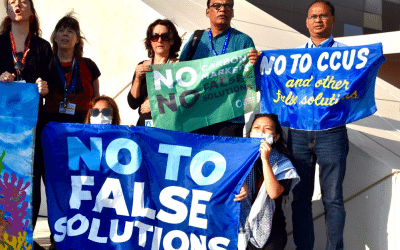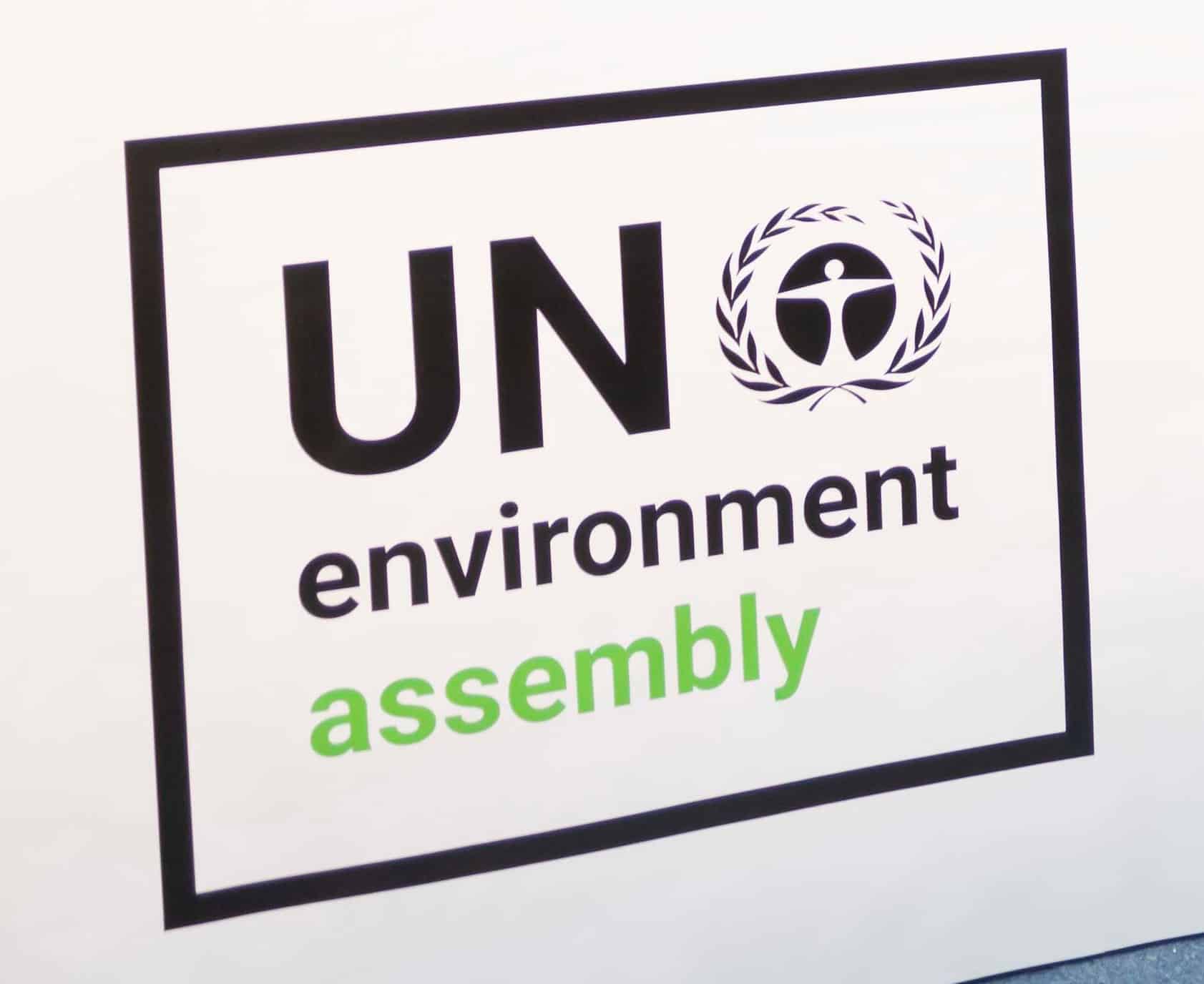“Biochar could offset Canada’s tar sands programme for 14.5 years.” — Lloyd Helferty, Advisory Committee Member of the International Biochar Initiative (video)
Background: What is biochar?
Biochar – a PR term for charcoal added to soils – is being promoted as the answer to most of the worlds’ crises. The idea is this: By turning crops, trees and so-called ―residues‖ into charcoal, we can produce both bioenergy and charcoal, which contains large amounts of carbon. If the charcoal is then tilled into soils, it will (supposedly) sequester vast amounts of carbon under the ground. New plants will then (supposedly) regrow, absorbing more carbon from the atmosphere. By repeatedly growing – charring burying the charcoal biochar will (supposedly) reduce the amount of CO2 in the atmosphere, sequester it in soils, and slow or even reverse global warming. The energy produced during charring will be used as a substitute for fossil fuels and the biochar will, (supposedly) make soils far more fertile, all of which will help solve the climate and energy crisis and world hunger in one stroke or at least go a long way towards solving them. Or so biochar advocates would have us believe.
The reality is very different: The impacts of biochar use on climate and soils are highly uncertain, even on a small scale and they vary widely. In fact, there are no peer-reviewed long-term field studies of modern biochar lasting more than a year or two. Some present and past indigenous farming practices mix some ash and charcoal with diverse organic residues but there is virtually no experience with adding large quantities of industrially-produced powdered charcoal to soils, let alone together with fossil-fuel based fertilisers as is the norm in biochar trials. A recent, (not peer-reviewed), field study from Quebec found that two years after biochar was applied to fields, the overall soil carbon was no greater than on other fields where no biochar had been used. Furthermore, biochar particles can be as small as black soot ones and if they become airborne, could have a very strong warming effect.
One thing we know, is that large-scale biochar would mean a vastly increased demand for crops and wood and thus for land. It is likely to replicate the experience with agrofuels, with serious impacts for people, forests and the climate. In August 2010, leading biochar advocates published an article in science journal Nature Communications which they attempt to estimate the global potential for ‘sustainable’ biochar. Among other assumptions, the authors assume the conversion of 556 million hectares of land to new crop and tree plantations for growing crops to produce charcoal. This is over 1.5 times the size of India and 20- 25 times greater than the area of land used for agrofuel plantations worldwide at present.
ConocoPhillips’ support for biochar:
So far, nearly all the companies promoting biochar are small startup biochar firms, voluntary carbon offset companies, consultancies and some bioenergy firms. The International Biochar Initiative (IBI) leads lobby efforts at the international level. Their main aim is to leverage funding through inclusion of biochar into the carbon markets.
There is only one large, multi-national company at present which actively supports the IBI’s endeavours: ConocoPhillips. Back in 2007/08, they gave $22 million to a biochar-related research project based at Iowa State University, led by a member of the IBI’s Advisory Board. More recently, however, their support has gone far beyond research. In December 2009, ConocoPhillips Canada became one of two ‘Founding Sponsors’ of the Biochar Protocol, an initiative which aims to get biochar into carbon trading (the other sponsor was the Carbon War Room – co-funded by biofuel entrepreneur Branson, which works in partnership with the IBI). There are reports of ConocoPhillips having been involved in trying to persuade other multinational companies, such as agribusiness firm DuPont to also back biochar.
The Biochar Protocol’s immediate aim is to see biochar included into two carbon trading schemes: The Voluntary Carbon Standard and the Alberta Offset Scheme, which is effectively an offsetting mechanism for the tar sands industry in Alberta. ConocoPhillips boasts about being a leading investor in Canadian tar sands.
The Alberta Offset System – Why would tar sands investors be interested in biochar?
The Alberta Offset System (AOS) was introduced in 2007 as part of carbon trade-based ‘climate legislation’ passed by the Government of Alberta, which seeks to legitimise ever-rising carbon emissions from the tar sands mega-projects – considered to be among the most destructive projects on earth, with a legacy of toxic contamination and human rights abuses. The government of Alberta claims that under the AOS, Alberta’s emissions have been reduced by over 17 million tons – a remarkable claim, given that the Canadian Government estimates that Alberta’s emissions have grown by 67 million tonnes or 40% since 1990. Offsets are clearly Alberta’s favourite way to ‘hide’ fast rising emissions. Under Alberta’s legislation, there are no limits on overall emissions, instead the 100 largest greenhouse gas emitters (including all the larger investors in tar sands), have to address only their ‘carbon intensity’. This means they can keep emitting more and more CO2, as long as their emissions per unit of energy decrease – or as long as they buy enough offsets.
The AOS rules and standards are more lax and even more industry-friendly than those of many other carbon trading schemes. A biochar proposal has just been submitted and will be considered (and probably rubberstamped) in 2011.
What tar sands investors want and need, under Alberta’s legislation, are unlimited, cheap carbon offsets from schemes in Alberta (under the AOS, offset projects have to be provided from inside the state). Biochar could be imported from plantations anywhere in the world however, as long as it is used in Alberta. Once such a market exists with the first larger-scale demand from Alberta, plantation expansion in countries including Brazil, Chile, Ghana, India or Malaysia (all countries with active biochar lobbies) could soon follow. If claims by biochar advocates about the scale of potential biochar production are to be believed), biochar offsets could become so plentiful that they’d push down the price of carbon offsets and make the whole scheme even cheaper for the tar sands industry.
Alberta’s tar sands offsets and the International Biochar Initiative’s strategy:
In 2008/09, the IBI put most of their energies into getting biochar included in the Clean Development Mechanism (CDM). They might still succeed, but there are growing doubts whether the CDM will survive at all, given rich countries’ lack of support for extending the Kyoto Protocol. The AOS, on the other hand, offers the chance of quick success. It is a far smaller scheme, but expected to grow and, above all, getting biochar into one scheme would help the IBI lobby for inclusion into larger carbon markets in future.
During the IBI’s Third International Conference in September 2010, they appointed Keith Driver of Leading Carbon Ltd, a key advisor to the Alberta Offset System to draft the IBI’s first ever biochar standards. These will be industry standards, with no claims about ‘sustainability’ or climate impacts. This, together with the Biochar Protocol, appears to be the IBI’s main priority for the next twelve months, key to their strategy of scaling up biochar. The IBI and tar sands-industry advisors and representatives are thus working hand in hand to put in place carbon offsets and policies which could ultimate involve large-scale carbon finance for biochar, resulting in large up-scaling of production. This would very likely have the same impact as biofuels – massive expansion of industrial monocultures, deforestation, land grabs, evictions of peasant farmers, indigenous peoples, other forest -dependent communities and pastoralists, worsening hunger and human rights abuses and climate change.
For more information see:
- Nature Communications Article shows ‘true colours’ of biochar advocates’ and Biochar: ―Sustainable Charcoal from 556 million hectares of plantations?, October 2010.
- Agriculture and Climate Change: Real Problems, False Solutions, December 2009
- Biochar Land-grabbing: The Impacts on Africa, November 2009


